|
Cobridge Road:
Century Street turns
onto Cobridge Road, running from Etruria at the bottom up to the
ridge at the top where Cobridge traffic lights are.
The
Little Sisters of the Poor:
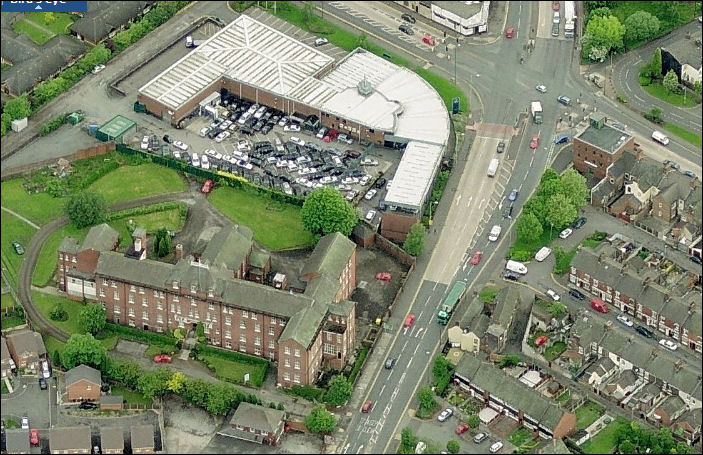
Top of Cobridge
Road - at the cross roads leading over to Elder Road
- running left to right at the cross roads is Waterloo Road -
- picture Jan 2008 -
To the right is St.
Augustine's Care Home (used to be the 'Little Sisters of the Poor'
convent), this building is to be demolished and replaced with a 33
bedroom, purpose built care home.
The existing building was approved to be used as a nursing home in
January 1994 and from June 1999 used for a number of years as a
hostel for refugees and asylum seekers.
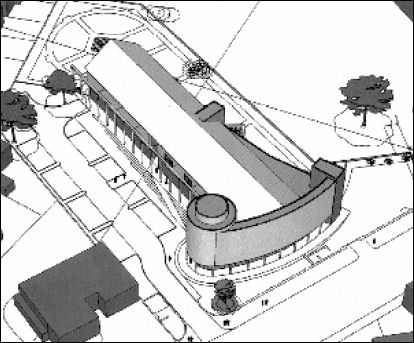
proposed new nursing home
- fronting onto Cobridge
Road, the round 'turret' part is a gym and offices -
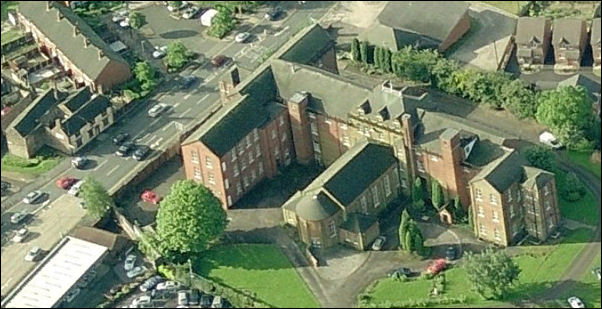
other view of
the St. Augustine's care home
on the opposite side of Cobridge Road can be seen the
former Black Boy Inn
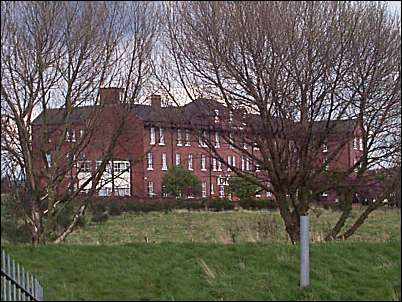
Photo taken on 27th April 2000 -the
day of the complete closure of Shelton Steel Works
take at the top end of the extent of the old Shelton works
St. Augustine's nursing home.

Black
Boy Inn:
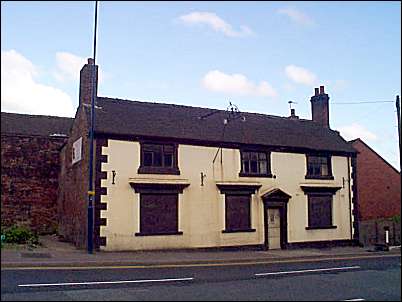
Black Boy Inn
Cobridge Road - photo 2001
1830 landlord of Black Boy - Jonathan Adams
a late 18th
century, two story building with three casement windows and
cornice hoods.
Although the shop and cottages have been demolished the Black
Boy inn is still standing and is a grade II listed building.
From the photos below the similarity of the door and the window
casements between the inn and shop can clearly be seen.
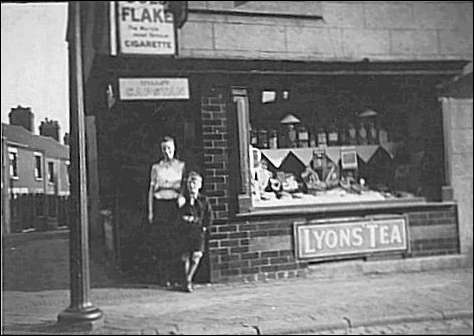
348 Cobridge Road -
at the junction with Waterloo Road

The cottage attached to the
shop
to the right is the
"Black Boy" inn - note from the photo of the inn above
the similarity between the buildings.
|
Photos and the following
information provided by Anne Adkins:
"The people standing in front
of the shop are my husband's father, Denis Adkins and the girl
is his sister, Joan. The shop was run by my husband's
grandparents, Austin and Mona Adkins. I don't know when they
started running the shop, but I do have a letter addressed to
Mona Adkins at that address (348 Cobridge Road) in 1921.
Here is the information from my husband's cousin (she
remembers working in the shop as a child, which, in her case,
would have been in the early fifties):
"The shop was on a corner and the address was 348 Cobridge
Rd., Cobridge. It was formed from an original shop plus 2
cottages. Next door on Cobridge Rd. was a pub called The
Black Boy. Further up the road towards the town of Cobridge
lived my grandmother's mother Annie Whitehead in a house
called Prospect House which had been the family house.
Opposite the shop was a pottery and a little lower down the
road a convent, The Sisters of Mercy." "
|
|
the
following information provided by Phil Johnson:
"We had a little bit of a sporting association
with the area.
The pub, The Black Boy, had been kept by my
Mum’s Uncle, (my grandma’s brother) Billy Briscoe, who had
been a prolific footballer with Port Vale in the 1920’s and
1930’s.
Burslem Cricket Club, just across the road by The Little
Sisters of the Poor Mission, had been the team my Dad, Tom
Johnson, played for along with other relatives. My Dad even
represented Staffordshire there against a guest West Indies
side which included Gary Sobers. I was only interested in
running around the perimeter of the field – totally
un-interested in the game itself – even on the day a fast
bowler took most of my Dad’s teeth out with a particularly
lethal delivery !
The smell of the beer and sandwiches in the clubhouse also
fascinated me along with the mysterious and enigmatic stretch
of derelict land just outside the cricket ground – known as
‘The Giant’s Bed’ – you’ll probably now recognise it as
Festival Park, the busiest retail park in Staffordshire." |
The Black Boy inn, Cobridge was
a location for boxing and wrestling training.......
John Thomas (Tut) Whalley
lived as a child at 9 Princes Street, Shelton, Stoke-on-Trent.
He came from a family of two brothers and five sisters and
stated his father’s occupation as Labourer and mother’s as a
Housewife.
Tut was a pupil at Cannon Street School, Shelton and learnt to
box at ‘The Black Boy Inn’ in Cobridge under the tutelage of
Jack Bartlett. Before his boxing career developed he worked as a
mould runner for Johnson's Pottery in Hanley and as a driver for
G.E.G.B.. During the Second World War (1939-45) he was a
Physical Training Instructor (Sergeant) in the R.A.F. Regiment.
He fought at flyweight and was a Southpaw.
Throughout his career he fought
150 fights and only lost two. Once he had eight professional
fights in 12 days and said the reason this was possible was
because he won them all on K.O.s. assisted by his great speed.
Tut is unmarked by his boxing career and has no broken nose,
scars or cauliflower ears to betray his pugilism.
|
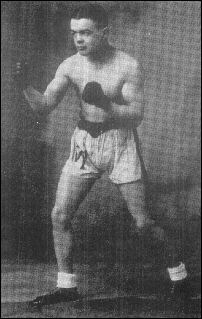
'Tut' Whalley
learnt to box at The Black
Boy Inn |
One of Mow Cop's best-known
characters was Bill Ogden, who was a professional wrestler from the age
of 22 until he quit the ring at the age of 60.
After watching the Saturday night wrestling at the Victoria Hall, Hanley,
Bill decided to try his hand at "grappling," and began training at the Black
Boy pub in Cobridge.
Later, as he got more proficient, he trained at the famed Belshaw brothers'
gym in Wigan, cycling there and back from Mow Cop every Sunday, a great deal
sorer on the return journey than when he started out. He was billed as
Coalman Billy Ogden when he made his debut at the Ideal skating rink,Hanley,
in 1935, and in an eventful career fought world champions Jack Beaumont and
George Kidd in title bouts. In the latter half of his career he became a
ring "villain" under the name Gypsy Joe Savoldi, and was famed within the
"game" as one of "The Hanley Lads,"

|
![]()
![]()
![]()